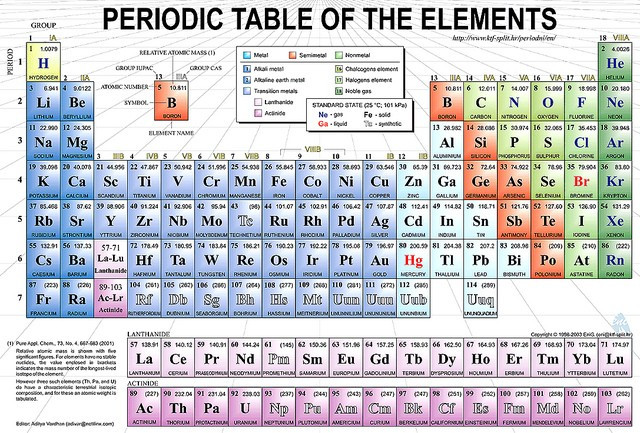Scientists Confirm Existence of New Element 115

Scientists have confirmed the existence of a new element.
International researchers led by Lund University conducted an experiment to prove the existence of the element, which has been given the atomic number 115, at the GSI Helmholtz Centre for Heavy Ion Research facility in Germany.
The test confirmed earlier measurements taken by Russian research groups. As well as proving its existence, the team also gained a better insight of the structure and properties of the super-heavy atomic nuclei.
Dirk Rudolph, of the Division of Atomic Physics at Lund University, said: "This was a very successful experiment and is one of the most important in the field in recent years."
The scientists confirmed the new element by bombarding a thin film of americium (a radioactive chemical element) with calcium ions. This allowed them to measure the photons in connection with the new element's alpha decay.
"Certain energies of the photons agreed with the expected energies for X-ray radiation, which is a 'fingerprint' of a given element," the scientists said.
Formally acknowledged
A committee made up of members of the international unions of pure and applied physics and chemistry will review the study findings to decide whether to recommend more experiments.
If this goes ahead, the new element will be formally acknowledged and it will be given a name.
Three new elements were added to the Periodic Table in 2012 after the confirmation of elements 110, 111 and 112 were named darmstadtium (Ds), roentgenium (Rg) and copernicium (Cn).
All three are super-heavy elements and are so large and unstable that they can only be made in a lab, after which they break down into other elements.
Dr Robert Kirby-Harris, chief executive at IOP and secretary-general of the International Union of Pure and Applied Physics, said: "The naming of these elements has been agreed in consultation with physicists around the world and we're delighted to see them now being introduced to the Periodic Table."
© Copyright IBTimes 2024. All rights reserved.







